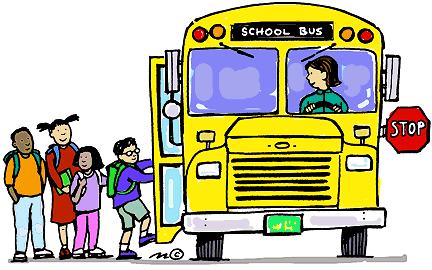Walter is currently 15 years old and is just finishing up Grade 10, his second year of high school. He dreams to become a chef one day, and so he currently holds a part-time position working after school at Yummy Patties; a local burger joint where he flips burgers and makes some much needed cash. He finds his job very rewarding because he works with some great people, has a very understanding manager, and sees this opportunity as a building block in his aspiration to own a restaurant in the future.
When it comes to his academics, Walter is
not doing so well. He dislikes the subjects he is currently taking because he
does not find the courses applicable to his daily life. He enjoys the
independence that comes with working part-time; he does not need to ask his
parents for an allowance and he feels “all grown up” because people are much older
than he is at his workplace.
After much deliberation, Walter decides that he
wants to drop out of high school because he sees no benefit in staying in
school. To him, a full-time job at Yummy Patties is more realistic as it will
give him the motivation to move up the hierarchy of the corporation.
Is it legal
for Walter to drop out of school at his current age? What are the
repercussions?
There is a statute in Ontario, called the Education Act, which covers all issues related to education. According to s.21 (1) of the Education Act (below) everyone over the age of six must attend school until they graduate or reach age 18:
Section 21(1) Unless
excused under this section,
(a) every person who
attains the age of six years on or before the first school day in September in
any year shall attend an elementary or secondary school on every school day
from the first school day in September in that year until the person attains
the age of 18 years; and
(b) every person who
attains the age of six years after the first school day in September in any
year shall attend an elementary or secondary school on every school day from
the first school day in September in the next succeeding year until the last
school day in June in the year in which the person attains the age of 18 years
Walter is under 15 years old and he can actually be charged
with an offence under the Provincial Offences Act and made to attend court for
skipping or "being habitually absent" from school, see section 30 (5)
of the Education Act below:
Section 30 (5): A person
who is required by law to attend school and who refuses to attend or who is
habitually absent from school is, unless the person is 16 years old or older,
guilty of an offence and on conviction is liable to the penalties under Part VI
of the Provincial Offences Act
and subsection 266 (2) of this Act applies in any proceeding under this
section.
Walter’s parents can be charged too. The Education Act
makes it a parent or guardian’s responsibility to make sure that students go to
school if the law requires it. If a parent neglects or refuses to fulfill
this responsibility, they can be fined up to $200. See section 30 (1) of the
Education Act below:
Section 30 (1): A parent or guardian
of a person required to attend school under section 21 who neglects or refuses
to cause that person to attend school is, unless the person is 16 years old or
older, guilty of an offence and on conviction is liable to a fine of not more
than $200
Not only that Walter's employer Yummy Patties could also be charged for employing Walter during school hours. He could be asked to pay a fine for up to $200. See section 30(3) of the Education Act below:
Section 30(3): Anyone who employs during school hours a person required to attend school under section 21 is, unless the person is sixteen years or older, guilty of an offence and on conviction is liable to a fine of not more than $200.
Not only that Walter's employer Yummy Patties could also be charged for employing Walter during school hours. He could be asked to pay a fine for up to $200. See section 30(3) of the Education Act below:
Section 30(3): Anyone who employs during school hours a person required to attend school under section 21 is, unless the person is sixteen years or older, guilty of an offence and on conviction is liable to a fine of not more than $200.
In 2006, Ontario introduced Bill 52, "The Learning to Age 18 Act", an act to amend the Education Act, which stated that changed the laws related to penalties for being out of school so that they applied to youth until the age of eighteen. However, while this bill was successfully passed in the Legislature it has not been made law.
If this is something that Walter really wants to do and he waits until he is 16 or 17 before he drops out of school, then he is technically breaking the law however, at this age neither Walter, his employer or his parents will be charged with an offence.
This blog scenario was written by Georjo Tabucan. The legal content of this blog post was written by Lauren Grossman, a first year law student at the University of Toronto who is volunteering at JFCY through her law schools Pro Bono Students Canada program. All legal content was reviewed by a JFCY staff lawyer.

.JPG)






